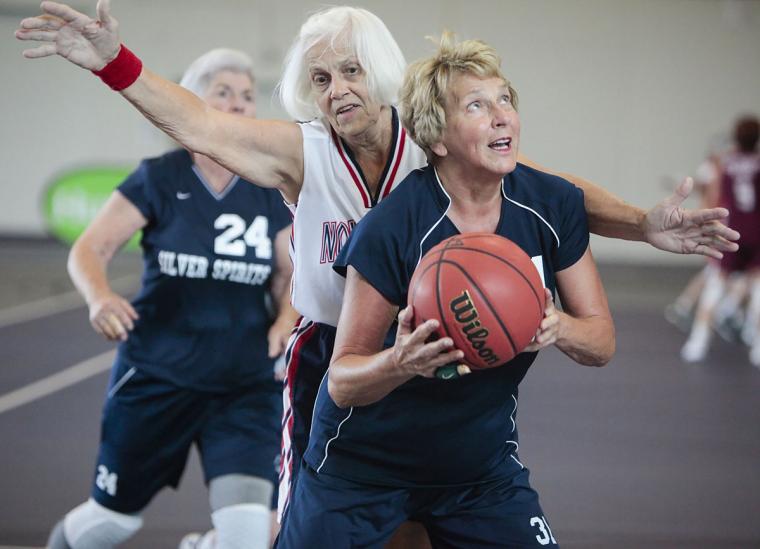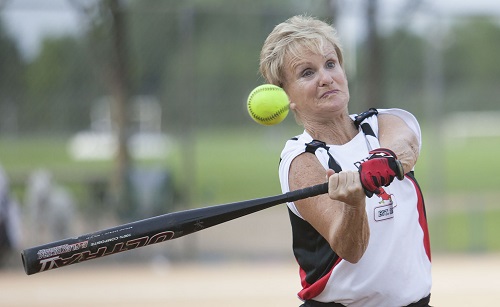
Much has been written about the 50th anniversary of Title IX. But sometimes, you need a firsthand look at the people who were most impacted by it and who have benefitted the most because of it. Sue Hlavacek of The National Senior Games Association (NSGA) has spent years talking to those whose lives were changed for the better – and who continue to actively take part in sports today.
Sue sat down with SDM to discuss Title IX and its impact on the lives of women who, as a result of its passage into law, were finally able to participate in teams in their schools. Sue’s background lends itself to this topic: She is the previous director of athletics for Notre Dame College in South Euclid, Ohio and was inducted into both her high school and college halls of fame. In addition, she played in the Women’s Basketball League (WBL), the first women’s professional basketball league in the U.S., and has a background as a P.E. teacher and coach.

Sports Destination Management: You work with senior athletes. Many of them are of an age to recall the time before Title IX.
Sue Hlavacek: Yes – and I hear so many great stories. In fact, a lot of our athletes might never have picked up a basketball, for example, in the 50s and 60s. I am younger than a lot of them so I was on the cusp of being able to play but women’s sports were still way behind men’s in terms of facilities, budgets and even schedules. When I was in high school, when it came to some sports, either you played with the boys on their team, or you didn’t play at all.
SDM: And probably women in the age brackets older than you had no way to do that.
Hlavacek: Some women have told me they never even really got to play a sport competitively before the National Senior Games.
SDM: Athletes like Katherine Switzer and Join Benoit Samuelson were originally told not to compete in sports like distance running because it was bad for them and could hurt their chances of having children.
Hlavacek: Yes, we were all told things like that. Oh, and that being in sports would stress our bodies unnecessarily. It’s interesting, though; with the marathon, for example, we’ve seen that women become better as they age, so women are staying in sports like running longer.

SDM: And athletes like Billie Jean King were simply told not enough people wanted to watch women compete. Now we know all those things are untrue.
Hlavacek: Society has discovered there is a lot of money to be made in women’s sports. The NCAA has become a lot bigger and stronger with the addition of women’s sports. I actually heard of a woman who opened a sports bar, and the sports bar shows only women’s sports on TV. Usually, if you go into a sports bar, it’s all male sports – or maybe they show women’s beach volleyball if that’s on because men want to see a woman in a two-piece swimsuit. We need more coverage of women’s sports as a whole.
SDM: What is the impact like on the National Senior Games, moving forward? With athletes eligible to compete at age 50, it’s likely we’re going to start seeing women who have never known a world without Title IX.
Hlavacek: I think we’re going to see a shift in the senior games within the next 10 years. Our seniors are more competitive now than they ever have been, and many of the women who are just coming in have had the opportunity to play sports all their lives. I think the skill level is going to become even stronger and remain stronger across the board.
SDM: There’s also a better understanding of sports medicine for women and how not only to treat injuries but how to keep athletes from reinjuring themselves. That should keep a lot of women in the pipeline. Will the Senior Games add more sports?
Hlavacek: Yes, as we continue to grow as a sports organization, we’ll be looking into adding more sports. We recently added cornhole and soccer; unfortunately, we didn’t get a lot of soccer teams but maybe with younger populations playing these days, especially girls, that’s something that will grow in the future.

